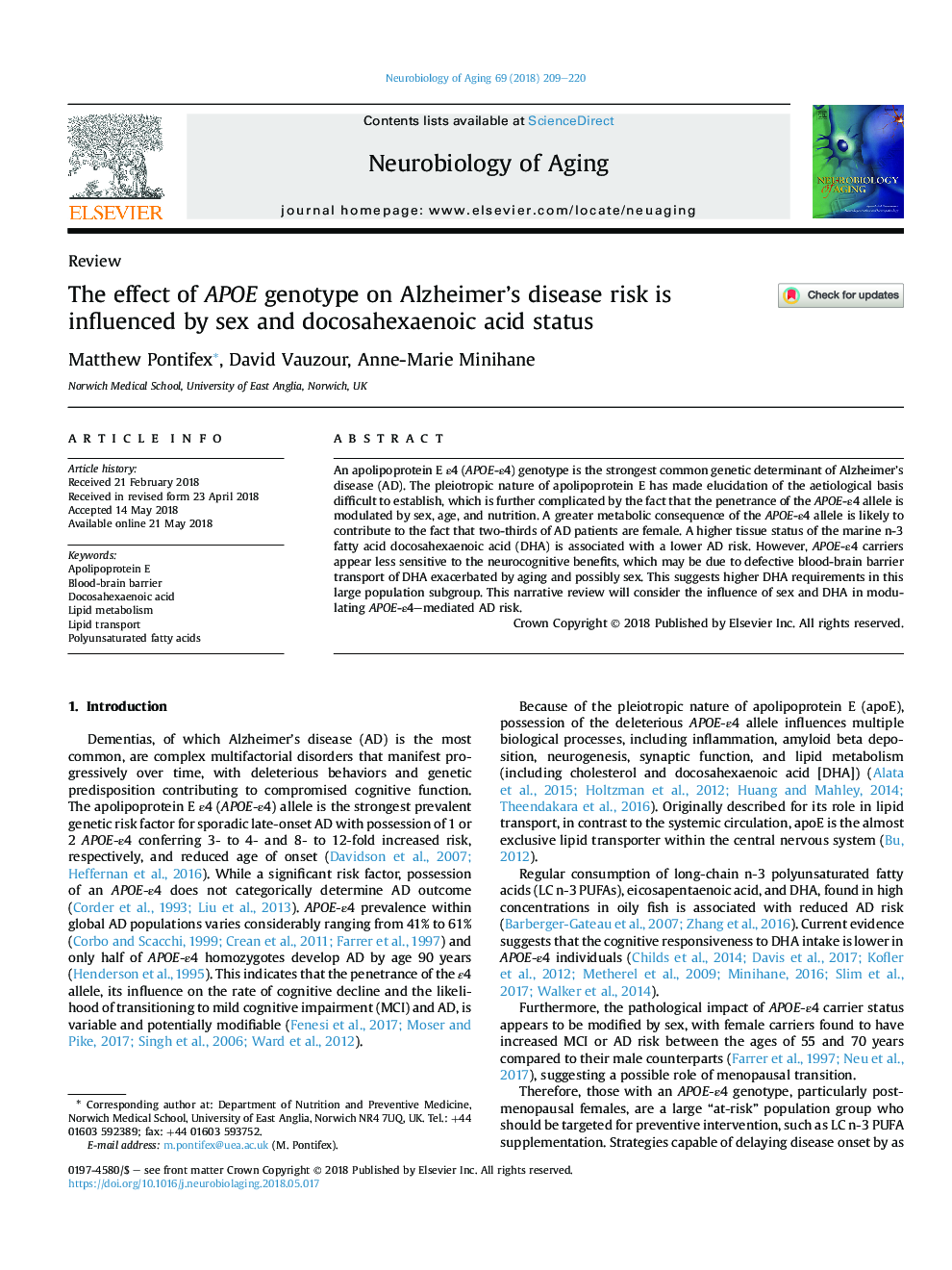| Article ID | Journal | Published Year | Pages | File Type |
|---|---|---|---|---|
| 6802882 | Neurobiology of Aging | 2018 | 12 Pages |
Abstract
An apolipoprotein E ε4 (APOE-ε4) genotype is the strongest common genetic determinant of Alzheimer's disease (AD). The pleiotropic nature of apolipoprotein E has made elucidation of the aetiological basis difficult to establish, which is further complicated by the fact that the penetrance of the APOE-ε4 allele is modulated by sex, age, and nutrition. A greater metabolic consequence of the APOE-ε4 allele is likely to contribute to the fact that two-thirds of AD patients are female. A higher tissue status of the marine n-3 fatty acid docosahexaenoic acid (DHA) is associated with a lower AD risk. However, APOE-ε4 carriers appear less sensitive to the neurocognitive benefits, which may be due to defective blood-brain barrier transport of DHA exacerbated by aging and possibly sex. This suggests higher DHA requirements in this large population subgroup. This narrative review will consider the influence of sex and DHA in modulating APOE-ε4-mediated AD risk.
Keywords
Related Topics
Life Sciences
Biochemistry, Genetics and Molecular Biology
Ageing
Authors
Matthew Pontifex, David Vauzour, Anne-Marie Minihane,
